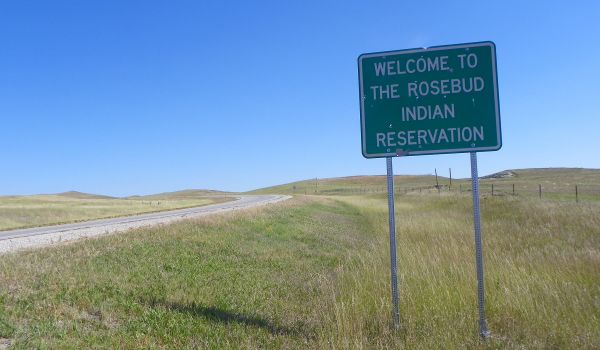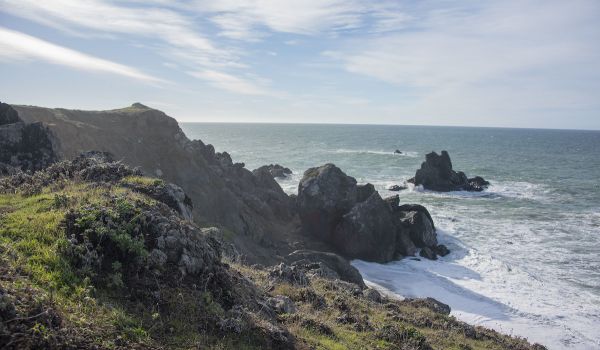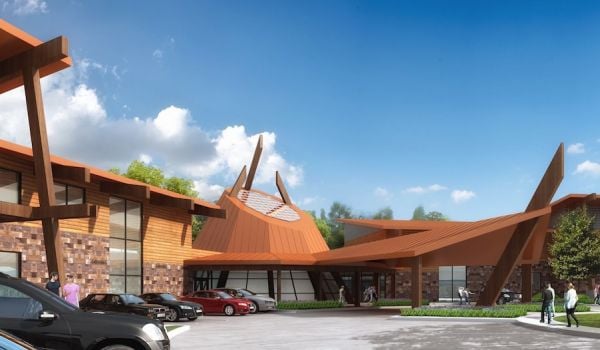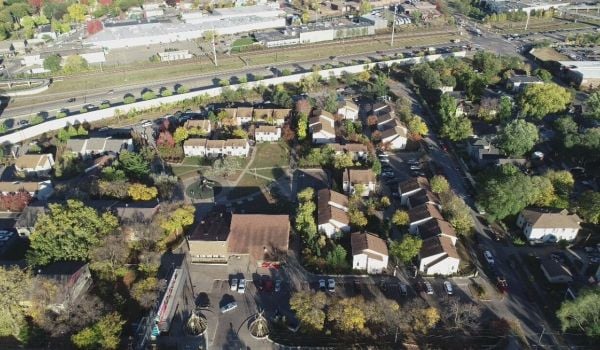For the Dakota people of Minnesota, the Wakan Tipi area is sacred. Located within the Bruce Vento Nature Sanctuary in St. Paul, the area contains an ancient cave network, including the Wakan Tipi Cave, which is particularly well-known because its walls are covered in ancient petroglyphs.
Soon, a new center being built at the site of the cave will become a site for people to learn, reflect and gather.
Maggie Lorenz is the executive director of the Lower Phalen Creek Project, the group spearheading the Wakan Tipi Center. She says the Dakota people have preserved a rich oral history about the nature of the Wakan Tipi area for generations.
“Dakota people have traditional stories relating to sacred water beings that are said to dwell within the cave,” Lorenz says. “This has also been a place of ceremony and burial for thousands of years.”
The establishment of the Bruce Vento Nature Sanctuary was one of the most significant accomplishments of the Lower Phalen Creek Project, which has been working to protect, restore and preserve green spaces and natural areas on the East Side of St. Paul for more than 20 years.
Lorenz says there are limited community gathering spaces in St. Paul for members of Minnesota’s 11 tribal nations. The center will help fill that need by serving as a cultural, environmental and interpretative space for native people in the Twin Cities to gather and hold events ranging from meetings to funerals, weddings or birthdays. “Just a general place where people can have a space to gather in a culturally specific and relevant place,” Lorenz says.
It will also educate the broader public about Indigenous Americans, particularly the Dakota people, through exhibits and programs.
To help finance the development of the Wakan Tipi Center, the group received two loans from CDFI Propel Nonprofits through their Capital Access service. The first was a recovery capital loan for $300K with a 25% principal forgiveness after two years. The second loan of $100,000 was a bridge loan to help them in their capital campaign pledges.
Propel was motivated to help the Lower Phalen Creek Project by their justice-oriented mission, says Koa Mirai, senior loan officer and financial specialist at Propel Nonprofits.
“We really like the way they are bringing together Dakota history and principles, together with ideas of environmental restoration, indigenous wisdom tradition, healing modality and cultural connection,” Mirai says.
“Propel has been an awesome partner for us,” Lorenz adds. “We had a lot of commitments from foundations and such, but those are paid over time. So the financing that they gave us really helped.”
Lower Phalen Creek Project is hoping to complete the new Wakan Tipi Center in early 2024. The cave itself will remain closed to the public. “Decisions regarding how and when the cave may be opened again will only be made through a tribal consultation, which will ultimately include the development of a cultural resource management plan,” Lorenz says. “That process will take time and has yet to begin.”
The cave has been closed since the 1970s, when Dakota Tribes and the city of St. Paul decided to block off its entrance to stop people from having parties and other disrespectful activities inside. “In those many hundreds and hundreds of years, we were able to come to an understanding of places where there was just kind of a nexus of sacred power,” Lorenz says. “And this is one of the places where our community has identified being that.”

This story is part of our series, CDFI Futures, which explores the community development finance industry through the lenses of equity, public policy and inclusive community development. The series is generously supported by Partners for the Common Good. Sign up for PCG’s CapNexus newsletter at capnexus.org.
Connie Aitcheson is a freelance writer based between Florida and Kingston, Jamaica. She worked for many years at Sports Illustrated and has been published in Essence, PTSD Journal, Cosmopolitan and espnw.com.


_920_614_600_350_80_s_c1.jpg)
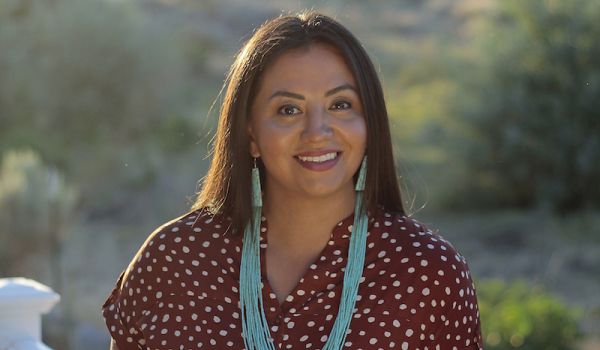

_600_350_80_s_c1.jpg)
